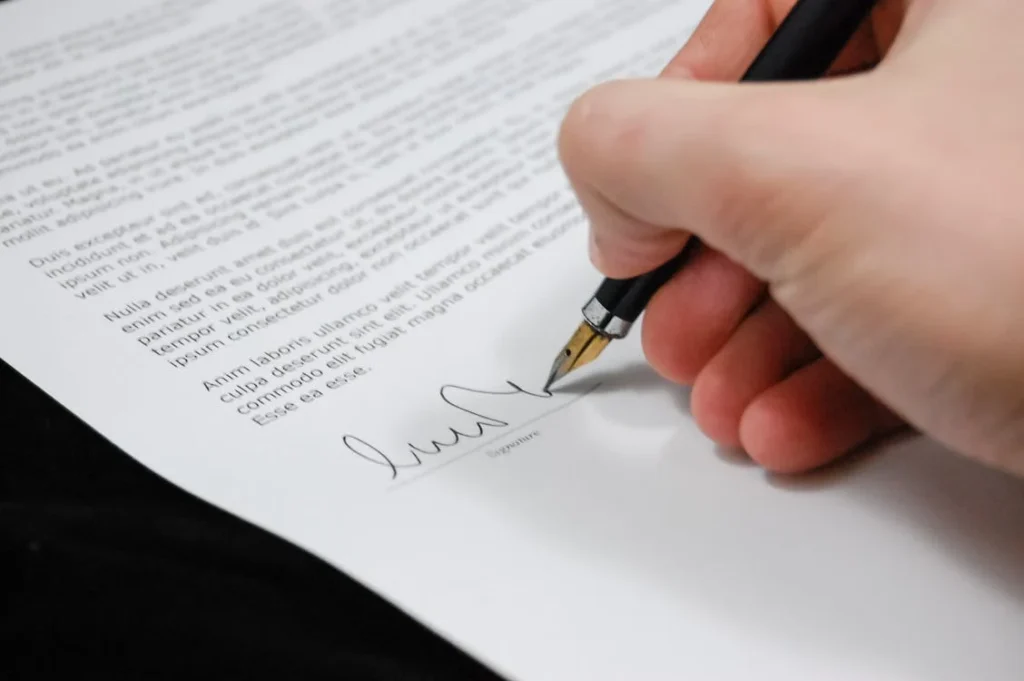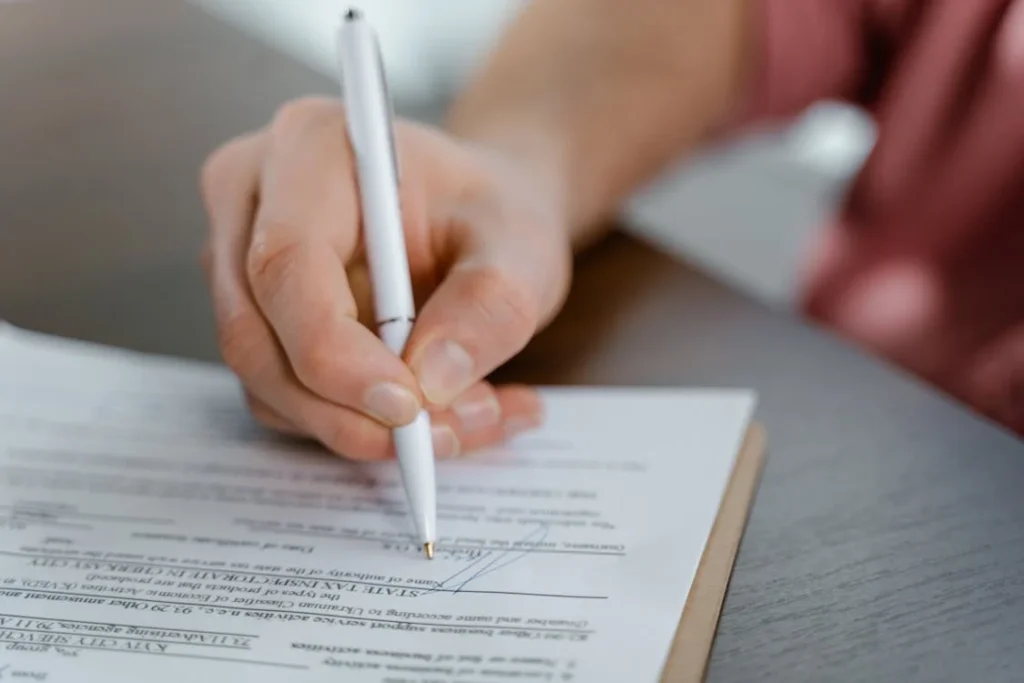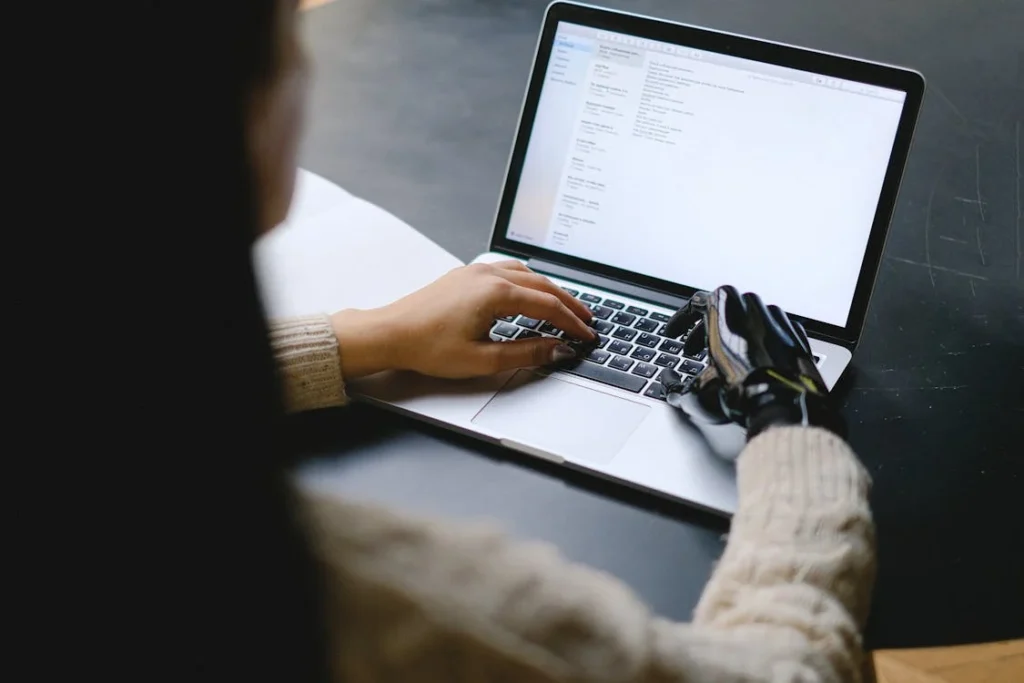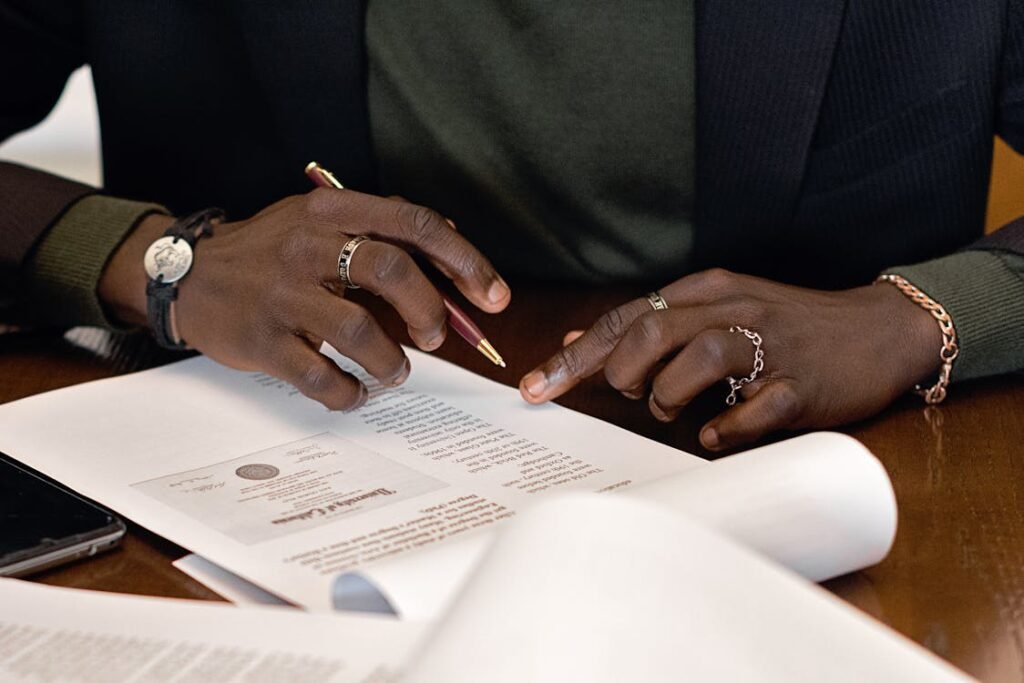Living with a disability can bring many challenges, especially financial ones. Medical expenses, mobility aids, home modifications, and even day-to-day costs can add up quickly. To support persons with disabilities, the Indian government provides disability pensions and financial benefits to help cover basic needs and improve quality of life. However, many people are unaware of how to apply for these benefits or face difficulties in claiming them due to lack of information and complex procedures.
Understanding how to claim disability pension and other financial support can make a big difference. Whether you are applying for yourself or a loved one, knowing the eligibility criteria, required documents, and step-by-step process will ensure you get the support you deserve.

Understanding Disability Pension in India
What is Disability Pension?
Disability pension is a financial support system provided by the government to persons with disabilities who are unable to earn a stable income due to their condition.
It is designed to help individuals cover their basic needs, medical expenses, and daily living costs. This pension is particularly crucial for those who have no other source of income or are unable to work due to the severity of their disability.
In India, disability pensions are provided under both central and state government schemes.
The Indira Gandhi National Disability Pension Scheme (IGNDPS), a part of the National Social Assistance Programme (NSAP), offers monthly financial assistance to persons with disabilities living below the poverty line.
In addition to this, several state governments run their own disability pension schemes, which may offer higher financial support and additional benefits.
Who is Eligible for Disability Pension?
To receive disability pension, a person must meet specific eligibility criteria set by the government. The most important requirement is having a disability percentage of at least 40%, as certified by a government medical authority.
The disability must be permanent and significantly affect the individual’s ability to work or perform daily activities.
Age is another factor that determines eligibility. In most cases, applicants must be at least 18 years old to qualify for disability pension.
Some states provide pensions for children with disabilities as well, but these are usually given as part of social welfare programs rather than direct pension schemes.
Income level plays a crucial role in determining who can receive financial assistance. The central government scheme is primarily aimed at individuals living below the poverty line (BPL).
Many state governments, however, extend disability pension benefits to those who fall under lower-income groups, even if they are not officially classified as BPL. Applicants must provide proof of income, such as a BPL card or income certificate, to verify their financial status.
Another essential requirement is the residency status of the applicant. The disability pension scheme is typically available only to Indian citizens who have been residing in the respective state for a certain period, usually five years or more.
Some states may ask for a domicile certificate as proof of residence.
Central vs. State Government Disability Pension Schemes
The disability pension amount varies depending on whether the applicant is receiving assistance from a central government scheme or a state government program.
Under the Indira Gandhi National Disability Pension Scheme, eligible individuals receive a monthly pension of at least ₹300. While this amount may seem small, state governments often provide additional financial support to supplement the central scheme.
For example, states like Delhi, Uttar Pradesh, and Tamil Nadu offer higher disability pensions, sometimes ranging between ₹1,000 and ₹2,500 per month.
Some states also provide extra allowances for individuals with severe disabilities, those who require a caregiver, or those who are completely dependent on others for daily activities.
Apart from direct financial assistance, many state governments offer additional benefits such as free medical treatment, subsidies for assistive devices, education support for disabled children, and priority access to government housing schemes.
These benefits vary from state to state, so it is important for applicants to check with their local social welfare department to understand what additional support they may be eligible for.

How to Apply for Disability Pension in India
Step-by-Step Application Process
Applying for disability pension requires careful documentation and following the correct procedure to avoid delays. The process typically begins with obtaining a disability certificate from a government-recognized medical board.
This certificate is essential as it verifies the nature and severity of the disability. Without it, an applicant cannot claim pension benefits.
To get a disability certificate, the applicant must visit a government hospital or a designated disability assessment center. A panel of doctors evaluates the person’s condition and assigns a disability percentage based on medical guidelines.
Once the evaluation is complete, the certificate is issued, either in physical form or as part of the Unique Disability ID (UDID) system, which digitizes disability records across India.
After obtaining the disability certificate, the next step is to gather other necessary documents. These typically include an Aadhaar card, proof of age, income certificate, domicile certificate, and bank account details.
Some states may require additional documents such as a ration card or voter ID to confirm residency and financial status.
Once all documents are ready, the applicant can proceed with submitting the disability pension application. Most states now allow online applications through dedicated government portals, making the process more convenient.
Applicants can log in, fill out the required forms, and upload scanned copies of their documents. After submission, they receive an acknowledgment receipt with a reference number to track their application status.
For those who prefer offline submission, applications can be submitted at local social welfare offices, municipal offices, or panchayat offices. In such cases, applicants need to submit photocopies of their documents along with the completed form.
The authorities then verify the details and forward the application for approval.
Verification and Approval Process
Once the application is submitted, the concerned authorities conduct a verification process to confirm the applicant’s eligibility.
This usually involves cross-checking documents, verifying income status, and sometimes conducting a physical verification visit to ensure the applicant genuinely qualifies for the pension.
In some cases, applicants may be called for an interview or further medical examination if there are doubts regarding their disability percentage or financial condition.
If all requirements are met, the application is approved, and the pension amount starts getting credited to the applicant’s bank account every month.
The approval process may take a few weeks to a few months, depending on the state and the number of applications being processed.
To check the status of their application, applicants can use the reference number provided at the time of submission. Many state portals offer real-time tracking, allowing individuals to stay updated without visiting government offices.
Common Reasons for Application Rejection
While the government has simplified the disability pension application process, some applications still get rejected due to errors or missing documents.
One of the most common reasons for rejection is an incomplete application form. If any section of the form is left blank or incorrect information is provided, authorities may refuse to process the application.
Another frequent issue is invalid or outdated documents. If the disability certificate is not issued by a recognized medical board or if income proof is missing, the application is likely to be rejected.
Similarly, discrepancies in personal details, such as mismatched Aadhaar card and bank account information, can lead to delays or rejection.
In cases where an application is rejected, the applicant has the right to reapply after correcting the errors.
Some states also allow appeals, where the applicant can present additional evidence or request a reassessment of their case. Seeking help from local disability rights organizations or government helplines can make the process smoother.

Additional Financial Benefits for Persons with Disabilities in India
Monthly Allowances and Additional Pension Support
Apart from the standard disability pension, many states provide extra financial support to persons with disabilities based on the severity of their condition.
Individuals with severe disabilities, especially those who are fully dependent on a caregiver for daily activities, may qualify for an increased pension amount. Some states offer an additional caregiver allowance to help cover the costs of hiring assistance.
Certain disability categories, such as persons with multiple disabilities, cerebral palsy, or severe locomotor impairments, may receive higher pension payments.
In states like Maharashtra, Delhi, and Tamil Nadu, the pension amount can go up to ₹2,500 per month for those with 80% or higher disability. In some cases, individuals who are unable to work at all may qualify for lifelong financial assistance.
Women with disabilities often receive special financial benefits, including maternity assistance, childcare support, and housing priority. These provisions ensure that disabled women, who often face additional challenges in employment and mobility, have access to financial security.
Tax Benefits and Income Support
The Indian government provides several tax exemptions for persons with disabilities to reduce their financial burden. Under Section 80U of the Income Tax Act, 1961, individuals with disabilities can claim tax deductions on their income based on the severity of their condition.
Those with 40% to 80% disability can claim a deduction of up to ₹75,000, while individuals with more than 80% disability can claim up to ₹1,25,000.
Parents or guardians of a disabled dependent can also claim tax benefits under Section 80DD.
If they have taken an insurance policy or incur expenses for the medical treatment and rehabilitation of their disabled family member, they can receive significant tax relief. This helps families manage the financial impact of long-term medical care and assistive support.
Apart from tax exemptions, the government provides economic support through various savings and investment schemes tailored for persons with disabilities.
The Sukanya Samriddhi Yojana, for instance, allows families with disabled daughters to save money under a high-interest scheme with added security.
Similarly, the Pradhan Mantri Vaya Vandana Yojana provides pension benefits to senior citizens with disabilities, ensuring financial stability in old age.
Free Medical and Assistive Device Support
To reduce healthcare costs, the government offers free medical treatment and rehabilitation services for persons with disabilities.
Under the Ayushman Bharat health insurance scheme, eligible individuals can receive financial coverage of up to ₹5 lakh per year for hospital treatments.
Many government hospitals and medical colleges also provide free check-ups, surgeries, and physical therapy for those with permanent disabilities.
The Assistance to Disabled Persons for Purchase/Fitting of Aids and Appliances (ADIP) Scheme provides assistive devices such as prosthetic limbs, wheelchairs, crutches, and hearing aids at no cost or at highly subsidized rates.
Persons with disabilities who require special equipment for mobility, communication, or daily activities can apply for support through district disability rehabilitation centers (DDRCs).
For those with vision impairments, the government provides free braille kits, screen readers, and other assistive technologies. In addition, individuals with hearing loss can receive free cochlear implants under government-sponsored programs.
These benefits ensure that persons with disabilities can access the tools they need to lead independent and productive lives.

Special Financial Schemes and Employment Support for Persons with Disabilities
Government Loan and Subsidy Programs
Persons with disabilities who want to start their own business or become self-employed can benefit from government loan programs that provide financial assistance with lower interest rates.
The National Handicapped Finance and Development Corporation (NHFDC) offers financial aid for disabled individuals to set up small businesses, pursue higher education, or acquire vocational training.
These loans come with relaxed repayment terms, ensuring that persons with disabilities have access to funding without excessive financial strain.
Many state governments also run self-employment schemes where persons with disabilities can apply for subsidies to start businesses such as tailoring shops, grocery stores, or small-scale manufacturing units.
Under these schemes, financial grants are provided along with free skill training to help applicants succeed in their chosen field. Some states also offer free raw materials or equipment to help disabled entrepreneurs get started.
In addition, microfinance programs enable persons with disabilities in rural areas to access small loans for agricultural activities, dairy farming, or handicraft production.
These initiatives empower disabled individuals to earn a livelihood and become financially independent rather than relying solely on pensions.
Employment Opportunities and Salary Benefits
The Indian government has made efforts to ensure that persons with disabilities have access to employment opportunities. Apart from reservations in government jobs, financial incentives are provided to private companies that hire disabled employees.
Under the Incentive Scheme for Employment of Persons with Disabilities, the government reimburses a portion of the employer’s contribution to the Employees’ Provident Fund (EPF) and Employees’ State Insurance (ESI) for workers with disabilities.
This makes it more attractive for private companies to hire individuals with disabilities and promote workplace inclusion.
Persons with disabilities working in government jobs receive special benefits, such as relaxed working hours, priority postings near their hometowns, and additional leave options for medical treatment.
In certain public sector jobs, employees with disabilities may also be eligible for higher transport allowances and financial assistance for assistive devices like screen readers, wheelchairs, or modified workstations.
Additionally, the government has set up vocational training institutes to equip persons with disabilities with job-ready skills. Programs under the Skill India Mission provide free training in fields such as IT, hospitality, healthcare, and handicrafts.
Upon completion of training, many candidates receive job placements or financial support to start their own ventures.
Housing and Travel Benefits for Persons with Disabilities
Affordable housing schemes are another significant financial benefit for persons with disabilities in India. Under the Pradhan Mantri Awas Yojana (PMAY), persons with disabilities receive priority allotment for government-subsidized housing.
These homes are built with accessibility features like ramps, wider doorways, and adapted bathrooms to ensure independent living. Some states also provide financial grants or interest-free home loans to disabled individuals who want to purchase or modify their homes.
Travel concessions are another crucial support system for persons with disabilities. The Indian Railways offers a 75% discount on fares for persons with disabilities and their attendants.
Similarly, state transport services provide free or discounted bus travel within cities and rural areas. For air travel, persons with disabilities can avail of fare discounts on domestic flights operated by Air India and other airlines, making travel more affordable and accessible.
These financial benefits ensure that persons with disabilities can live with dignity, access essential services, and pursue careers or businesses without facing financial hardship.
However, many individuals are unaware of these schemes or struggle to navigate the complex application process. By spreading awareness and simplifying access to these benefits, India can take a significant step toward greater financial inclusion for persons with disabilities.

Challenges in Accessing Disability Pension and Financial Benefits
Lack of Awareness and Information Gaps
One of the biggest challenges persons with disabilities face while claiming financial benefits is the lack of awareness. Many eligible individuals are unaware that they qualify for disability pension or other financial support schemes.
The information is often scattered across different government departments, making it difficult to find clear guidelines on how to apply.
Government websites, while informative, are not always accessible for individuals with visual or cognitive impairments.
Many portals lack screen-reader compatibility, alternative text for images, or easy navigation tools, making it difficult for visually impaired applicants to apply online.
Additionally, rural populations often struggle due to limited internet access and a lack of nearby disability welfare offices.
Even when individuals are aware of these schemes, they often do not know the step-by-step process to claim benefits. Misinformation and unclear procedures lead to delays or rejections, discouraging many people from applying.
Conducting awareness campaigns, improving outreach efforts, and simplifying official documentation can help more persons with disabilities benefit from these financial programs.
Complicated Documentation and Bureaucratic Delays
Another major challenge is the complex documentation process. Most disability pension applications require multiple forms of identification, medical records, and income verification.
Many applicants struggle to obtain the necessary disability certificate, which is the key document required to claim benefits.
In some states, government hospitals have long waiting times for disability assessments. Applicants may need to visit multiple offices and medical centers to get certified, which can be exhausting, especially for those with mobility impairments.
Additionally, individuals with fluctuating conditions such as mental health disorders or neurological disabilities often face difficulties in getting their disability percentage recognized correctly.
Once applications are submitted, they go through multiple levels of verification, leading to long processing times. In some cases, pension approvals take months due to administrative backlogs.
Many applicants are forced to make repeated visits to government offices to check the status of their applications, which is especially difficult for those living in remote areas.
Issues with Bank Transfers and Payment Delays
Even after approval, receiving the pension amount can be a challenge. Many persons with disabilities do not have a personal bank account and rely on family members for financial transactions.
Government pension schemes require beneficiaries to have a linked Aadhaar and bank account, which can create difficulties for those who do not have proper documentation.
In rural areas, accessing banks and ATMs is another issue, as many financial institutions are not disability-friendly. Lack of ramps, inaccessible counters, and limited digital banking knowledge make it harder for disabled individuals to withdraw their pension money.
Additionally, pension disbursement delays are common, with beneficiaries sometimes waiting months for their payments due to technical issues in fund transfers.
Social Stigma and Dependency Concerns
Many persons with disabilities face social stigma when applying for financial assistance. Some individuals feel hesitant to claim disability pension due to societal attitudes that associate financial aid with dependence.
Families and communities may discourage them from applying, fearing that it may impact their dignity or job prospects.
In some cases, employers do not provide job opportunities to persons with disabilities once they learn they are receiving financial benefits.
There is a misconception that disabled individuals who receive government support do not need employment, which can reduce job prospects.
Addressing these biases and promoting financial independence alongside pension benefits is essential for true economic inclusion.
The Need for Policy Improvements
To address these challenges, disability pension and financial benefit schemes need better implementation and policy reforms.
Simplifying application processes, reducing bureaucratic red tape, and ensuring quicker processing times can significantly improve access to benefits.
Introducing a single-window system where applicants can complete the entire process in one location or online portal would reduce delays and improve efficiency.
Expanding banking accessibility by promoting mobile banking, doorstep financial services, and assistive technologies can also help disabled individuals manage their pension money independently.
Encouraging private sector banks to improve accessibility in branches and ATMs will further remove financial barriers.
Stronger government monitoring of pension disbursements can help reduce delays and corruption in fund allocation. Ensuring that payments are made on time and directly to beneficiaries without intermediaries will create a more reliable system.
Regular audits and grievance redressal mechanisms can further ensure that persons with disabilities receive their rightful financial support without unnecessary hurdles.

Steps to Improve Access to Disability Pension and Financial Benefits
Simplifying the Application Process
One of the most effective ways to improve access to disability pensions is to simplify the application process. Many persons with disabilities struggle with lengthy paperwork and unclear procedures, which discourages them from applying.
The government can address this issue by creating a single-window system where all required documents can be submitted and processed under one platform.
Moving more processes online is another important step, but these digital platforms must be accessible to all types of disabilities.
Websites should have screen-reader compatibility for visually impaired users, voice assistance for those with mobility issues, and easy navigation options for persons with cognitive disabilities.
Providing application forms in regional languages and in an easy-to-read format will also help more individuals apply without confusion.
For those who do not have internet access, the government should set up dedicated support centers at district offices and local panchayats where trained officials can assist applicants with filling out forms and submitting documents.
Mobile application camps in rural areas can further ensure that no eligible person is left out due to lack of access to government offices.
Strengthening Awareness Campaigns
Lack of awareness remains a major reason why many persons with disabilities do not claim their rightful financial benefits. To overcome this, both central and state governments must invest in widespread awareness campaigns that reach even the most remote communities.
These campaigns can be conducted through television, radio, social media, and local newspapers to educate individuals and their families about available benefits and how to claim them.
Disability rights organizations and NGOs can also play a key role in spreading awareness by conducting community outreach programs, workshops, and informational sessions.
Publicizing success stories of individuals who have successfully claimed their pensions and improved their financial stability can motivate others to apply.
Government departments should also maintain a toll-free helpline where persons with disabilities can call for step-by-step guidance on the application process.
Ensuring Faster Processing and Timely Payments
Delays in processing pension applications and disbursing funds are common problems that discourage many eligible individuals from applying.
To fix this, the government must implement strict timeframes for processing applications and ensure that pension payments are credited on time each month.
Automating the verification process using the Unique Disability ID (UDID) system can help reduce delays caused by repeated document checks.
Linking disability pension payments to Aadhaar-based direct benefit transfer (DBT) systems will further minimize bureaucratic hurdles and ensure that funds reach beneficiaries without corruption or inefficiencies.
Introducing a real-time tracking system where applicants can check the status of their applications online or via SMS updates will also help reduce frustration and uncertainty.
If applications are rejected, the system should clearly state the reason and provide guidance on how to correct errors and reapply.
Expanding Disability Financial Benefits Beyond Pensions
While pensions provide basic financial support, many persons with disabilities require additional assistance to live independently and participate in society.
Expanding existing financial benefits, such as increasing the pension amount to reflect rising living costs, would be a crucial step toward economic security.
Providing additional financial incentives for education, skill development, and self-employment will empower persons with disabilities to build sustainable careers.
Scholarship programs should be expanded to cover more fields of study, and financial assistance should be provided for higher education and vocational training.
Encouraging corporate sectors to adopt inclusive hiring practices and providing wage subsidies for disabled employees will ensure that more persons with disabilities are able to earn a livelihood instead of relying solely on pensions.
Similarly, housing schemes should be expanded to offer low-cost, accessible homes for persons with disabilities, enabling them to live independently.
By addressing these gaps and making disability benefits more accessible, the government can create a system where persons with disabilities are financially secure and empowered to lead independent lives.

The Future of Disability Pension and Financial Support in India
Moving Towards a More Inclusive Social Security System
India has made significant progress in recognizing the rights of persons with disabilities through laws such as the Rights of Persons with Disabilities Act, 2016 and various financial assistance programs.
However, there is still a long way to go in ensuring that every disabled individual receives the financial support they need without unnecessary barriers.
Strengthening the social security system for persons with disabilities will require better implementation, increased funding, and a shift in policies to make benefits more comprehensive and accessible.
One of the major improvements needed is a revision of pension amounts. The current financial support provided under many disability pension schemes is too low to meet the rising cost of living.
Increasing pension payments to match inflation and adjusting the amount based on the severity of disability can make a significant impact.
For example, persons with severe disabilities who require round-the-clock care should receive higher financial assistance compared to those with moderate disabilities who may still be able to work part-time.
Creating a Seamless Digital System for Disability Benefits
A major challenge in the current pension system is the complexity of applying, verifying, and receiving financial aid. The future of disability pension schemes in India should focus on creating a seamless, integrated digital system that eliminates unnecessary paperwork and bureaucratic hurdles.
Expanding the Unique Disability ID (UDID) system to cover all financial benefits and link it directly to bank accounts would make the process smoother.
Once a person is registered under the UDID, they should automatically be eligible for applicable financial benefits, reducing the need for repeated documentation and verification. This will not only save time but also prevent corruption and delays in pension disbursements.
Using artificial intelligence (AI) and data analytics, the government can proactively identify eligible beneficiaries and reach out to them with simplified application processes.
Instead of waiting for persons with disabilities to apply, authorities can use existing databases to pre-approve applications and provide benefits without unnecessary delays.
Expanding Financial Support Beyond Traditional Pensions
While pensions provide essential financial security, future policies should focus on long-term financial independence rather than just monthly stipends.
This means expanding financial support beyond pensions to include grants for education, housing, healthcare, and entrepreneurship.
Providing interest-free loans for disabled entrepreneurs, funding assistive technology startups, and offering tax benefits for businesses that hire persons with disabilities can create more job opportunities.
Instead of just relying on pensions, disabled individuals can become financially independent through self-employment or skill-based careers.
Another area that needs improvement is disability-inclusive insurance policies. Many private insurance companies do not cover persons with disabilities or charge extremely high premiums.
The government should introduce subsidized disability insurance plans that provide financial protection against medical emergencies, caregiver support, and long-term care expenses.
Strengthening Legal Protections and Accountability
For disability pensions and financial benefits to truly reach those in need, strict enforcement of policies and legal protections is required.
Government agencies responsible for disability welfare should be held accountable for delays, discrimination, and inefficiencies in disbursing financial benefits.
Regular audits and public reports on the number of pension beneficiaries, pending applications, and resolved grievances can increase transparency.
A dedicated ombudsman system should be introduced to handle complaints and appeals related to financial benefits for persons with disabilities.
Social security should not be seen as charity but as a fundamental right. The government must work closely with disability advocacy groups, NGOs, and private sector partners to ensure that financial inclusion for persons with disabilities is a reality, not just a policy on paper.
Conclusion
Disability pension and financial benefits play a crucial role in ensuring that persons with disabilities in India can live with dignity and independence. However, gaps in awareness, accessibility, and efficiency continue to make it difficult for many eligible individuals to claim their rightful support.
By simplifying application processes, increasing pension amounts, expanding financial assistance beyond pensions, and leveraging technology, India can create a more inclusive and effective disability welfare system. Future policies must focus not only on financial aid but also on empowering persons with disabilities through education, employment, and entrepreneurship opportunities.
With strong policy reforms and a commitment to inclusion, India has the potential to build a society where persons with disabilities are not just beneficiaries of government schemes but active, independent contributors to the nation’s progress. Ensuring financial security for disabled individuals is not just a responsibility—it is a necessary step toward a truly equitable and inclusive future.




charanbhoikanhu161@gmail.com